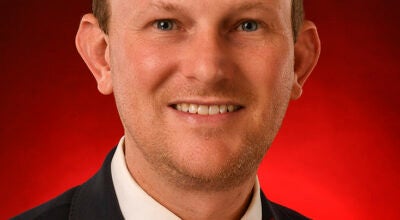Looking to the future with hope
Published 11:36 pm Friday, January 15, 2016
There are historical moments that often slip by both pundits and partisans. President Obama’s final State of the Union address is one of them.
Blake Hounshell is Politico’s digital editorial director, a veteran journalist who is given to wry tweets and light mocking of politicians. But, humorous, or serious, I quote his tweet because it mirrored the common partisan Republican reaction: “Obama spends (his) entire speech attacking Republicans and then wonders why American politics is so divisive.”
Calling Obama’s State of the Union an attack on Republicans — some said it was anti-Trump — is like saying that the Gettysburg Address was an attack on the Confederacy. Or that President Lincoln made an anti-Jefferson Davis speech.
This is how I saw the speech — and yes, I am a partisan too: Obama’s final State of the Union address was more a declaration of America’s core values, of our commonly held principles that should transcend our political divisions. This final address embodied more of his core beliefs and the president’s clear, firm vision for America’s future.
Like most presidents entering their final year, Obama was supposed to do a few victory laps, recall his accomplishments, offer a few platitudes, and slink away to “lame duck” status for the rest of the election year. Instead, he “put the pedal to the metal,” as NASCAR fans say.
Obama also plunged into the 2016 presidential election like a man whose strong convictions have not wavered, and one who has every intention of leading until the next president is on the inaugural platform and says, “So help me, God.”
Obama listed four questions the nation needs to answer. (I defy you to find the political commentator or official critic who mentioned them to their viewers or readers who missed the address.) Personally, I liked question four best:
“First, how do we give everyone a fair shot at opportunity and security in this new economy?
“Second, how do we make technology work for us, and not against us …
“Third, how do we keep America safe and lead the world without becoming its policeman?
“And finally, how can we make our politics reflect what’s best in us, and not what’s worst?”
South Carolina Republican Gov. Nikki Haley, with an advance copy of Obama’s speech, also acknowledged Obama’s call for better politics, and made a remarkable and courageous admission that we won’t hear out of Washington, except from Obama and a handful of members of Congress:
“We need to be honest with each other, and with ourselves: While Democrats in Washington bear much responsibility for the problems facing America today, they do not bear it alone. There is more than enough blame to go around.
“We as Republicans need to own that truth. We need to recognize our contributions to the erosion of the public trust in America’s leadership. We need to accept that we’ve played a role in how and why our government is broken.”
Obama acknowledged his role: “It’s one of the few regrets of my presidency … that the rancor and suspicion between the parties has gotten worse instead of better. There’s no doubt a president with the gifts of Lincoln or Roosevelt might have better bridged the divide.
“The future we want,” Obama said, “will only happen if we fix our politics.”
Obama wasn’t merely referring to one candidate’s out-sized, crude, even cruel, rhetoric, mouthed daily, though that’s important to correct.
But in a season where political correctness seems under attack and big money is flowing through the political gridlock, it’s simply impossible to find common ground.
Obama went further. He believes the way to fix government is to begin to reform our political system itself.
He said we need to reform campaign financing and end the practice where a few families and hidden special interests control the ads on the airwaves. Most importantly, “We’ve got to make voting easier, not harder, and modernize it for the way we live now.”
Obama also implored citizens to act on how we vote: urging us to demand that Congressional districts be drawn so that the voters pick a candidate, rather than having a candidate who picks the voters he wants.
“I can’t do these things on my own.” Obama said, “Changes in our political process … depend on you. That’s what’s meant by a government of, by and for the people.”
We the People. We the American people. This final address should challenge us all to work together and fix our politics, because we are very important stakeholders in our democracy.
In just a few weeks, every eligible citizen will have an opportunity to vote. And the menu is full of candidates promising to fix this or change that. We’re going to choose between two distinct worldviews — either the one that contracts and retreats, or the one Obama laid out, and enter the future with hope, not fear.
I still believe in hope — hope in the powerful sense that we are indeed ready for a better future.
Donna Brazile is a senior Democratic strategist, a political commentator and contributor to CNN and ABC News, and a contributing columnist to Ms. Magazine and O, the Oprah Magazine.


